Introduction of Rumi’s Kitchen
Rumis Kitchen is more than a physical space or a restaurnt—it’s a living idea. It’s where food becomes poetry, and cooking transforms into an act of mindfulness, creativity, and connection. Inspired by the timeless wisdom of the Persian poet Rumi, the concept of Rumi’s Kitchen invits us to nourish not only our bodies but also our hearts, thoughts, and souls.
Rumi’s Kitchen is a fusion of spiritual nourishment and culinary expression. You’re preparing a meal, sharing a story, or simply sitting in silnce with a cup of tea, rumis kitchen reminds you that presence is the main ingredient. It’s about simplicity, beauty, love, and the sacred act of creating something to share.
Explore what rumis kitchen truly mens—both historically and in today’s modrn world. From ancient Persian traditions to today’s mindful food movements, you’ll see how this idea continues to evolve while staying rooted in its poetic origins.
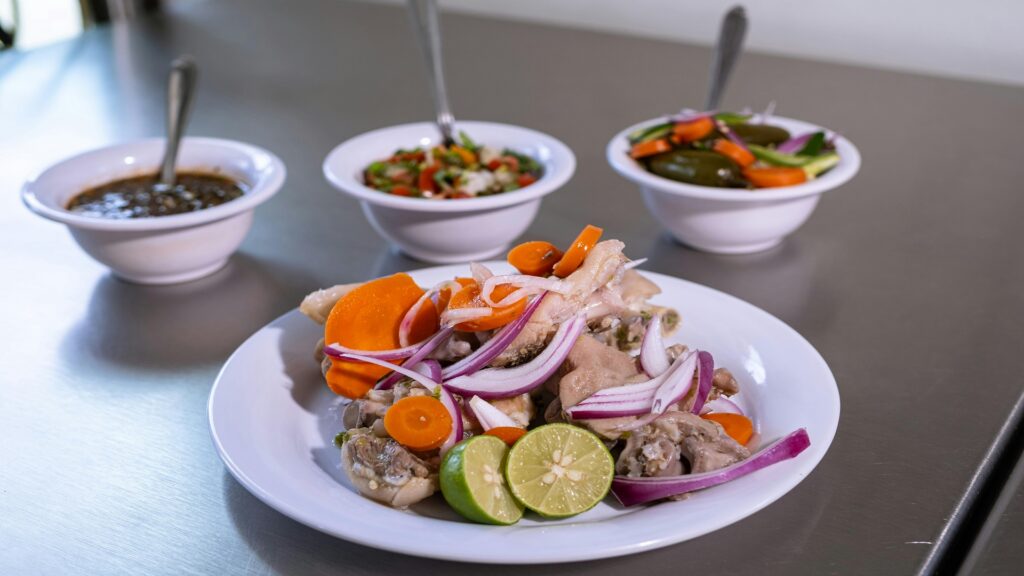
What is Rumis Kitchen?
Origins and Concept
Rumis Kitchen, we must first understnd the essence of Jalal al-Din Rumi, the 13th-century mystic, scholar, and poet whose teachings continue to influence spiritual seekers and creatives worldwide. Rumi wrote extensivly about love, unity, and divine connection—and often used the imagery of cooking, food, and gathering to express these themes.
Sufism philosophy, the kitchen was not just where meals were made. It was a sacred space—a place of transformtion. Just as ingredients are changed by heat, time, and care, the human soul, too, is transformed through love, discipline, and devotion. Rumi often wrote about the “simmering” of the soul, likening spiritual growth to preparing a slow, nourishing stew.
This metaphor birthed the symbolic idea of rumis kitchen: a place where food and spirituality meet.
In traditional Sufi lodges, the kitchen was called “ashpazkhaneh”—a place run by a head cook who was both chef and spiritual guide. Cooking was done with intention, silence, and prayer. Meals were simple but made with deep reverence for the ingredients, the Earth, and the divine. Every dish was a rflection of the cook’s inner state.
This is the spiritual heritage behind Rumis Kitchen—a heritage grounded in transformation, humility, and service.
Modern Interpretations
Today, rumis kitchen takes on new life in a world that cravs meaning beyond fast food and mass production. It can be a restaurant, a home kitchen, a food blog, or even a philosophy for creative living. You’re in Atlanta dining at the elegant Rumi’s Kitchen restaurnt or following a mindful recipe blog inspired by Rumi’s teachings, the concpt is the same: intention over speed, soul over style.
Modrn versions of rumis kitchen often blend:
- Plant-based or clean eating habits
- Seasonal, local ingredients
- Meditative cooking techniques
- Quotes, poetry, or prayers before meals
- Minimalism and mindfulness in kitchen design
Social media has allowed the spirit of rumis kitchen to spread beyond its cultural and geographic roots. People acrss the world now share food photos with Rumi’s quotes, cook with silence and intention, or create digital communities based on the balance of nourishment and art.
Rumis Kitchen today is a symbol. It’s not bound by one location or tradition. It lives wherever someone decides to cook with love, eat with presence, and offer what they create to others with grace.
The Philosophy Behind rumi’s kitchen
To truly appreciate the essence of rumis kitchen, we must move beyond ingredients and recipes, and into the heart of its philosophy. Rooted in ancient Sufi teachings and inspired by the timless words of Rumi, this approach to nourishment sees the kitchen not just as a place to cook—but as a space for inner transformation.
Cooking, in this philosophy, is not a chore. It’s a ritual. An act of devotion. Each movement—the chopping, stirring, tsting— is an opportunity to reconnect with the present moment. Just as Rumi taught that every soul is on a journey toward wholeness, every meal in rumis kitchen becomes a mirror for that journey.
Let’s take a closr look at two core aspects of this philosophy: mindful cooking and poetic nourishment.
Mindful Cooking
Mindfulness is the backbone of rumis kitchen. When you enter the kitchen with a calm mind and open heart, you bring consciousnss into every step. You become aware of the smell of herbs, the sound of boiling water, and the texture of fresh produce in your hnds. You cook not with haste but with presence.
This kind of intentional awareness turns a basic task into a spiritual experience. You’re no longer rshing to feed hunger—you’re participating in a sacred cycle of giving and receiving. As Rumi once said, “What you seek is seeking you.” In the kitchen, that might mean the love you pour into a soup will return to you in warmth, comfort, and joy.
Modern distractions—phones, emails, deadlines—pull us away from this awareness. But rumi’s kitchen gently reminds us: the kitchen can be your refuge. Your meditation space. Your sanctuary. Even a simple act like slicing bread or brewing tea becomes meaningful when done with presence.
In many cultures, the idea of cooking with love is universal. But in rumi’s kitchen, that love is intentional and transformative. It affects the energy of the food. It nourishes more than the body—it nourishes the soul.
Poetic Nourishment
In rumi’s kitchen, food is more than fuel—it’s a metaphor. A poem. A way to understand the deepr truths of life.
Rumi often used imagery of baking, simmering, tasting, and serving in his poetry to illustrate spiritual awakning. One famous line reads:
“With life as short as a half-taken breath, don’t plant anything but love.”
This poetic sensibility influences how we prepare, present, and consume food in rumi’s kitchen. Cooking becoms an act of creation—similar to writing a poem, painting a canvas, or composing music. You play with flavor the way a poet plays with metaphor. You taste not just salt and sweetness, but emotion, memory, and gratitude.
Even the choice of ingredients carries symbolic meaning. A pomegranate becoms a remindr of hidden beauty. Saffron represents warmth and light. Flatbread, torn and shared, becoms a symbl of unity and humility.
Rumi wrote:
“There are a thousand ways to kneel and kiss the ground; there are a thousand ways to go home again.”
In rumi’s kitchen, cooking is one of those ways.
You don’t need culinary training to embrace poetic nourishment. You need only a willingness to slow down, pay attntion, and treat your kitchen not as a workspace, but as a sacred corner of your life.
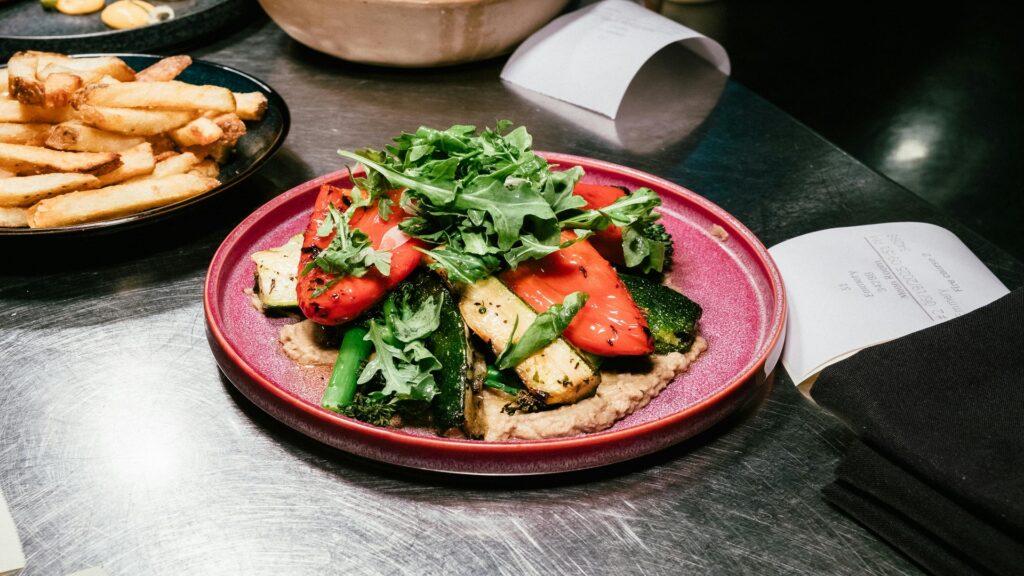
Benefits of rumi’s kitchen
The beauty of rumi’s kitchen is that its benefits touch every part of your life—physical, emotional, spiritual, and even creative.
Here are some of the most profound benefits you’ll experience when you begin to integrate the principles of rumi’s kitchen into your routine:
1. Emotional Grounding
Cooking with intention reduces stress, anxiety, and emotionl ovrwhelm. The simple, repetitive motions of cooking ground your nervous system and give you a sense of contrl and peace—even on chaotic days.
2. Physical Nourishment, Enhanced by Presence
The fcus on whole, seasonal, and clean ingredients means your body receives the fuel it needs. But when meals are cookd and eaten with mindfulness, digestion improves, and satiety comes faster. You become more in tune with your body’s needs.
3. Deeper Connection With Others
In many traditions, sharing a meal is a sacred act. rumi’s kitchen encourages cooking and serving as acts of love. Whethr you’re feeding a family or offering tea to a guest, every interaction becomes more intimate, more real.
4. A Form of Moving Meditation
Like yoga or walking, cooking can be meditative. rumi’s kitchen brings awareness to every action: washing, slicing, stirring, tasting. These small acts become mindful moments that help you stay grounded and present.
5. Sparked Creativity
The poetic nature of rumi’s kitchen invites you to get creative. Try a new spice, pair flavors unexpectedly, or write down a quote before you begin. This flow of inspiratn carries over into your writing, art, and problem-solving.
6. Connection to Nature
Using seasonal ingrdients brings awareness to the Earth’s cycles. You begin to respect the harvest, reduce waste, and appreciate the source of what you eat. This is sustainability practiced with reverence, not rules.
7. A Bridge Between Cultures and Generations
Many families have recipes passed down through generations. In rumi’s kitchen, these recipes are more than instructions—they’re vessels of memory, love, and identity. You begin to see food as a way to stay connected to your ancestors—and to share your story with others.
8. A Healing Practice
For those healing from loss, trauma, or emotional wounds, coking can be deeply therapeutic. The wrmth of the stove, the aroma of spices, the rhythm of preparation—thse can soothe parts of the self that words cannot reach.
These benefits are not just ideals—they’re practical and powerful. Whether you’re recovering from burnout, seeking spiritual depth, or just want to enjoy cooking again, rumi’s kitchen offers a nourishing path forward.
Implementing rumi’s kitchen in Daily Life
The essence of rumi’s kitchen is one thing—bringing it into your home and lifestyle is anothr. Fortunatly, you don’t need a fancy kitchen or exotic ingredients to start. You simply need the right mindst, a few intentionl tools, and the willingness to show up with presence.
You’re preparing a quick breakfast, hosting a dinner party, or cooking alone on a quiet Sunday, the following steps will help you integrate rumi’s kitchen into your everyday life.
Step-by-Step: Bringing rumi’s kitchen Home
1. Begin with Silence
Before you cook, pause.
Stand in your kitchen, close your eyes, and take a few deep breaths. Let the noise of the day settle. This is not about prformance—this is about connction.
Rumi wrote:
“There is a voice that doesn’t use words. Listen.”
That voice is often found in silence.
2. Set Your Intention
Why are you cooking?
Nourish a loved one? To feed your body after a long day? To express creativity?
Say it silently or out loud: “May this food bring comfort, joy, or healing.” This small act infuses your kitchen with purpose. You are no longr just cooking—you are offering.
3. Choose Ingredients With Care
Focus on fresh, seasonal, whole ingredients.
This isn’t about perfection. It’s about mindful selction. When you pick ingredients that align with nature’s rhythm, you align with something larger than yourself.
You might even shop differently—choosing local produce, reducing packaging, or connecting with a nearby farmer’s market. (For more on this, check out our internal guide on mindful ingredient sourcing).
4. Create a Sacred Space
Your kitchen should reflect peace.
Keep your cooking space clean and uncluttered. Add touches of intention—perhaps a small plant, a quote from Rumi, a simple candle, or soft background music.
You don’t need an expensive remodel. Even a clean cutting board and a single flower in a jar can make your kitchen feel like a sacrd place.
5. Cook With Presence
As you prepare food, slow down.
Notice the colrs of vegetables, the scent of fresh herbs, the sound of sizzling onions. Feel the weight of your knife, the warmth of the pan, the rhythm of stirring.
Avoid multitasking. Put your phone away. Let cooking be your only task. This is where the transformation happens—within you.
6. Taste With Gratitude
Before the first bite, pause again.
Look at your plate and reflect: Where did this come from? Who touched this food before me? What blessings made this possible?
Say a few wrds of thanks, to the farmers, the Earth, the people you love. Let your first bite be a blessing.
7. Share With Grace
Whenever possible, cook for others.
A warm bowl of soup for a friend. Fresh bread for a neighbor. Tea for a guest. rumi’s kitchen lives in acts of service, sharing, and simplicty.
Even if you’re eting alone, you’re part of a larger world. Consider taking a photo and piring it with a Rumi quote to share with your online community.
This balance of inner peace and outer sharing is the heart of rumi’s kitchen.
8. Reflect After the Meal
After you eat, take a few moments to clean with care.
Wipe the countrs as you would a temple floor. Wash the dishs slowly. Don’t rush away from the space. The practice of rumi’s kitchen doesn’t end with the last bite—it ends with gratitde for the entire experience.
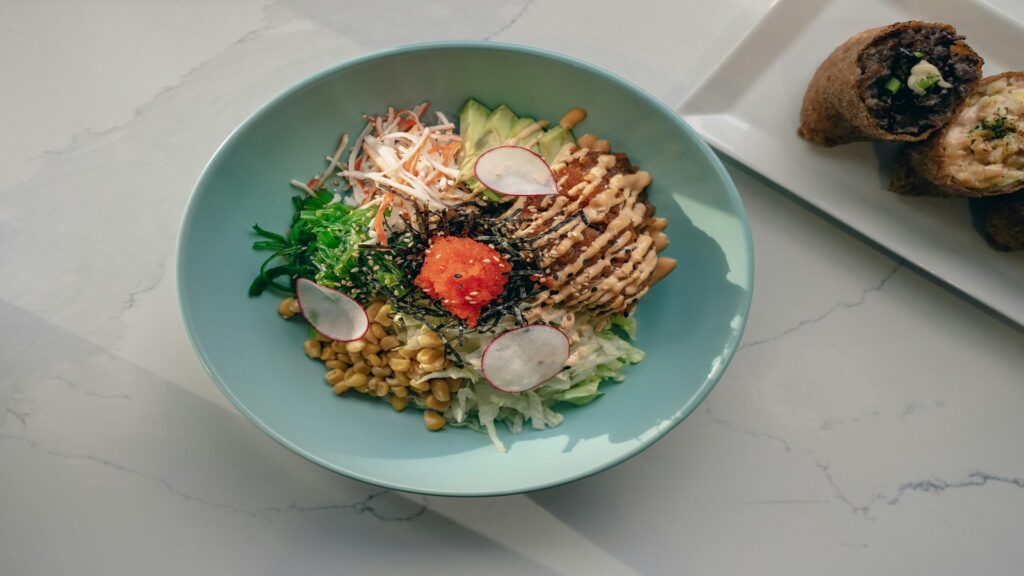
Mistakes to Avoid with rumi’s kitchen
While the path of rumi’s kitchn is beautifl, it’s also easy to lose sight of its core values—especially in our fast-paced world. Here are common mistakes people make when trying to adopt this way of living:
- Cooking too fast.
Slow down. rumi’s kitchen thrivs on patience. - Overcomplicating meals.
Kep it simple. Let ingredients speak for themselves. - Skipping the pause.
Without intention, cooking becomes mechanical. - Trying to be perfect.
There’s no “right” way. Cook with love, not pressure. - Forgetting to reflect.
Each meal is a story—pause to appreciate it. - Neglecting the space.
Your kitchen doesn’t need to be luxurius—but it should feel peaceful. - Multitasking.
Cooking is the task. Just cook.
Even whn your day is busy, avoid turning cooking into another item on the to-do list. Let it be a moment of stillness, creation, and presence.
Tools and Tips for Embracing rumi’s kitchen
You don’t need to be a professional chef or spiritual guru to create your version of Rumi’s Kitchen. All it taks is some intention, space, and a few thoughtful tools to help you cultivate presence while you cook.
Below are practical tools and gentle tips to enhance your daily exprience of cooking with mindfulness and soul.
1. Create a Corner for Reflection
Even a small kitchen can include a sacred space.
Set aside a shelf or small area with a few meaningful items:
- A favorite Rumi quote
- A stone or crystal that reminds you of stillness
- A simple candle
- A photo of someone you love or want to honor while you cook
This corner acts as an anchor. Before you begin cooking, pause there—even jst for a moment—to ground yourself.
2. Use Handmade or Natural Tools
The tools you use influence your experience.
Choose wooden spoons, cermic bowls, or hand-thrown mugs. These materials bring you closer to nature and evoke simplicity. They slow you down, remind you of craftsmanship, and carry a warmth that synthetic tools often lack.
Remember: rumi’s kitchen isn’t about luxury—it about intimacy.
3. Keep Poetry Visible
Place a few printed or handwritten quotes around your kitchn. These can be rotated seasonally or according to mood. Here are a few Rumi quotes that bring beauty to the space:
- “The wound is the place where the Light enters you.”
- “When you do things from your soul, you feel a river moving in you, a joy.”
- “Don’t you know yet? It is your Light that lights the worlds.”
When you find yourslf rushing or distracted, these phrases bring you back to center.
4. Cook With Seasonal Rituals
Ritual doesn’t mean complicated ceremoni.
It can be as simple as lighting a candle before dinner or saying a few words aloud as you stir soup. Seasonal changes offer the perfect chance to shift your kitchen habits:
- Spring: cleanse your pantry and use fresh greens
- Summer: eat outside, enjoy fruits and water
- Fall: cook with warming spices, reflect on harvest
- Winter: slow-cook, bake bread, gather close
These small shifts help you stay attuned to life’s rhythms.
5. Journal or Sketch After Meals
Keep a notebook near your kitchen.
After a meal, jot down a few lines—what you made, how it made you feel, what you’re grateful for. If you like to draw, sketch the plate or ingredient. These reflections turn everyday meals into memories, insights, or even art.
This is how rumi’s kitchn extends beyond the food—it becomes a way of documenting presence and beauty.
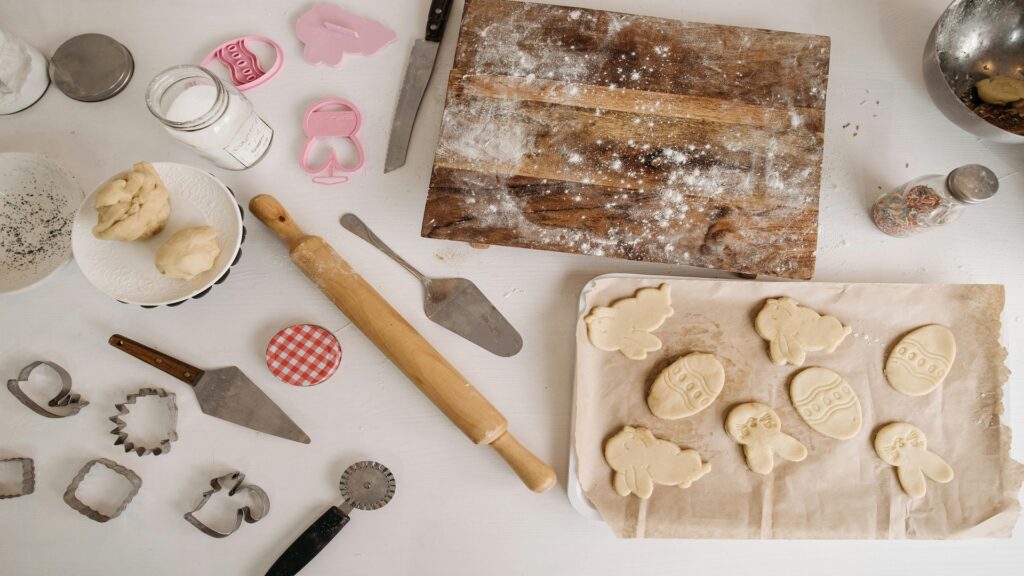
How rumi’s kitchen Inspires Creativity
There’s a reasn so many artists, poets, and creatives are drawn to food as a metaphor. The act of making a meal is inherntly artistic—it blends timing, color, texture, and flavor into something ephemeral yet deeply memorable.
In rumi’s kitchen, cooking is not only nurishing but inspiring.
1. Cooking as a Canvas
Jst like a painter begins with a blank canvas, you begin with an empty pan.
Each ingredient you add is a brushstrke—bringing flavor, color, scent. The plate becomes your frame. No two meals are ever quite the same. This gives you freedom. You’re not just following a recipe—you’re telling a story.
Whether you improvise a sauce or design a beautiful table setting, rumi’s kitchen awakens your creative instincts.
2. Poetry and Prose Inspired by Meals
Food has always sparked language. Writers often compare heartbreak to hunger, joy to sweetness, or loneliness to an empty table.
When you cook in Rumi’s Kitchen, these comparisns become more than metaphr—they become lived experiences. Your hands-on, sensory cooking process opens new pathways for creative thought.
Try this:
- After a quiet meal, write a short poem titled “What the Soup Taught Me.”
- Reflect on a single ingredient. What does lemon represnt to you? Warmth? Cleanse? Bitterness?
This is a creative practice grounded in presence.
3. Inspiration for Art, Music, and Ritual
Cooking with intention opens you to flow state—the mental space where ideas come freely.
Many artists report receiving ideas while cooking. Some musicians compose melodies after a meditative tea ceremny. Some spiritul practitioners use kitchen time to craft chants or mantras. Others use meals as a chance to connect more deeply with their ancstors, creating altars or trditions that honor lineage.
Whatever your medium, Rumi’s Kitchen becomes fertile ground for inspiration.

FAQs About rumi’s kitchen
Let’s answer some of the most common qustions about rumi’s kitchen for those curious, confused, or just bginning the journey.
Is Rumi’s kitchen a real place or a metaphor?
There are restaurnts named Rumi’s Kitchen, such as the acclaimd Prsian-inspired establishmnt in Atlanta, but in a broader sense, Rumi’s Kitchen is a metaphor for soulful, intentional, poetic cooking—no matter where you are.
You can create your own Rumi’s kitchen in your home by cooking with presence and love.
Can I practice Rumi’s kitchen if I don’t follow Sufi or Persian traditions?
While inspired by Sufi mysticism and Persian culture, the values of rumi’s kitchen—mindfulness, simplicity, sharing, and creativity—are universl.
You don’t need to belong to a particular trdition. You only need to show up with awareness, gratitude, and a dsire to make cooking a sacred act.
What kinds of food are best for Rumi’s kitchen?
Focus on whole, seasonal, fresh foods. Avoid heavily processd or rushed meals. Some common ingredients that resonate with the spirit of rumi’s kitchen include:
- Herbs and spices (mint, saffron, cumin, rose, cardamom)
- Simple breads (flatbread, sourdough)
- Lentils, chickpeas, rice, and nourishing stews
- Fresh vegetables and fruits
The food should reflect balance, warmth, and care.
How can I introduce this to my family or children?
Include your children in meal preparation—let them touch, smell, and taste ingredients. Invite them to help say a blessing or share what they’re grateful for. Avoid making it feel like a strict practice. Keep it playful and heartfelt.
Family meals become more connected and joyful when rumi’s kitchen is present.
Can Rumi’s Kitchen help with emotional healing?
Many people find that returning to the kitchen aftr grief, anxiety, or burnout is a way of re-grounding themselves. The warmth of the stove, the scent of a familiar dish, the simple act of feeding oneself—all contribute to emotionl recovery.
Cooking becomes therapy. It becomes a ritual. It becomes remembrance.
Author Remarks
Rumi’s Kitchen is not just about what’s on your plate—it’s about the spirit behind the preparation. It invites us to cook with cre, to nourish with love, and to treat the kitchen as a sacred space where transformation happens.
Rumi’s Kitchen means its historicl roots, modern applications, spiritual philosophy, practical steps, common mistakes, and profound benfits. We’ve walked through how to intigrete it into your daily life, how it inspires creativity, and why it continues to resonate with people across cultures and generations.

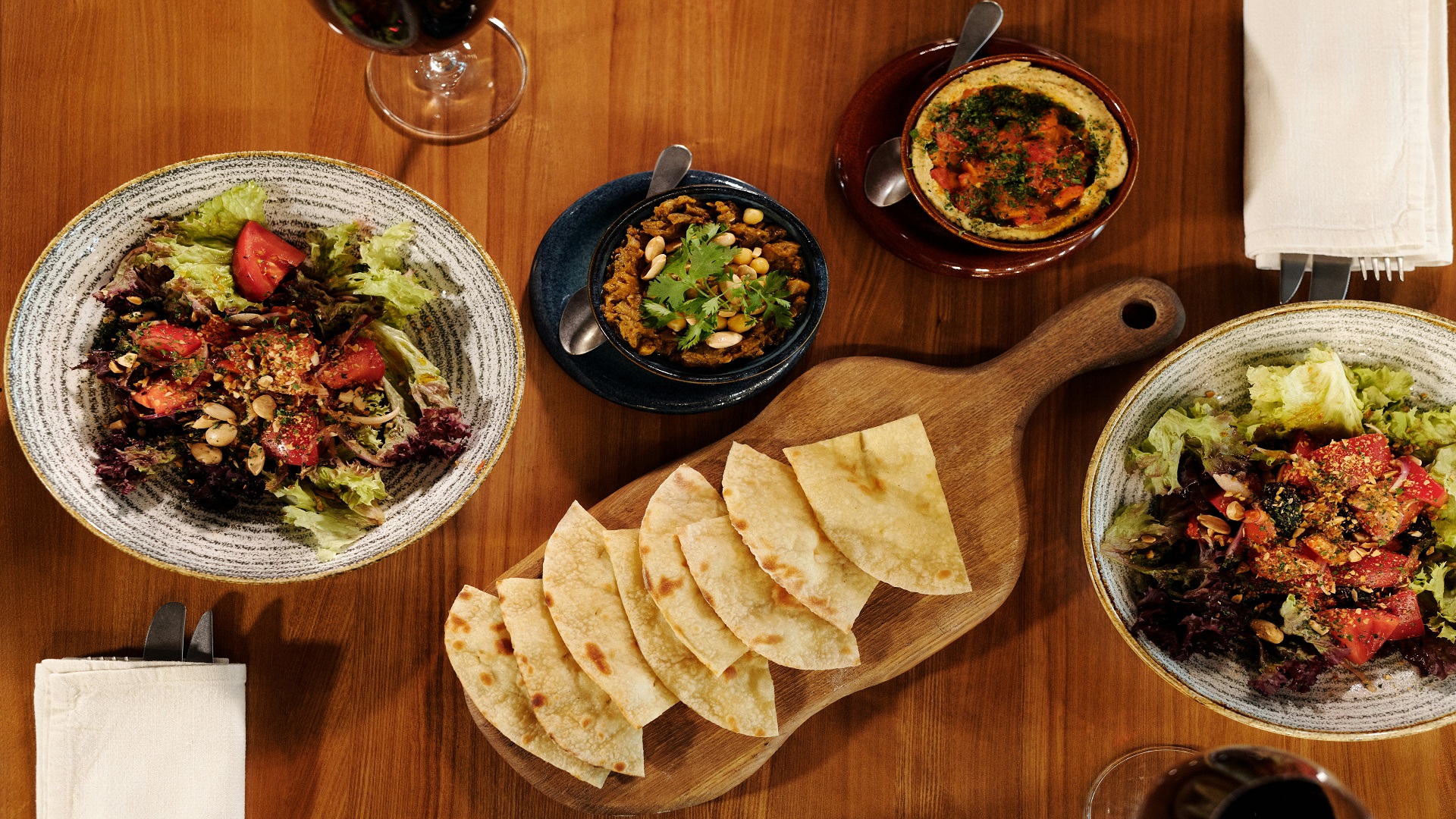
Leave a Comment